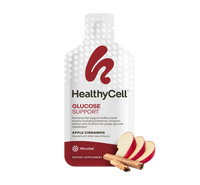Do you ever wonder if the vitamins you take are doing their job? While the idea of pooping out expensive supplements might seem strange, it's a common occurrence. This article explores the fascinating world of vitamin absorption, explaining why some vitamins might end up leaving your body undigested, and what you can do to ensure you're getting the most out of your supplements.
The Digestive Process: How Vitamins Are Absorbed in the Body
The digestive process begins in the mouth, where chewing and mixing with saliva break down food into smaller particles. These particles then travel to the stomach, where powerful stomach acid and enzymes further break down food and prepare it for absorption.
Next, the small intestine takes center stage. Tiny finger-like projections called villi line the small intestine, maximizing the surface area for nutrient absorption. Water-soluble vitamins like vitamin C and B vitamins readily dissolve in water and pass directly through the intestinal wall into the bloodstream. Fat-soluble vitamins (A, D, E, and K) need a little extra help. They team up with dietary fat to get absorbed and then travel through the lymphatic system before entering the bloodstream.
But what happens if a vitamin particle is too big or hasn't been properly broken down? Unfortunately, it may not be readily absorbed by the villi and could end up traveling all the way through your digestive system, eventually exiting your body in your stool. This is where the concept of "pooping out" vitamins comes in.
Why Some Vitamins Are Pooped Out
Not all vitamins are created equal, especially when it comes to absorption. Large, compact tablets or poorly formulated supplements might be difficult for your body to break down effectively, leading to them passing through undigested. Additionally, factors like a lack of digestive enzymes, a fast metabolism, or poor gut health can also hinder vitamin absorption.
Bioavailability is the key term here. It refers to the amount of a nutrient that your body can absorb and utilize. Supplements with low bioavailability simply mean your body struggles to take advantage of the vitamins they contain. So, how do you know if you're "excreting" vitamins in your stool? Sometimes, you might see bright colors or even remnants of the pill itself. However, more concerning signs include chronic vitamin deficiencies, fatigue, or digestive issues.
The Difference Between What Gets Excreted in Pee vs. Poop
It's important to distinguish between what gets excreted in your urine and what gets eliminated in your stool.
Water-Soluble Vitamins (Excreted in Urine):
- Once absorbed and transported in the bloodstream, water-soluble vitamins travel to the kidneys. These clever organs filter out any excess water-soluble vitamins (think B vitamins and vitamin C) that your body doesn't need at that moment. These excess vitamins then hitch a ride out of your body via urine. This doesn't mean you haven't absorbed them – it just means your body has regulated the amount it needs.
- On the other hand, fat-soluble vitamins (A, D, E, and K) tend to stick around in your body for longer and are stored in your liver and fatty tissues. Any undigested fat-soluble vitamins, along with other waste products, are eliminated through your stool
Additional Factors Affecting Vitamin Absorption
Beyond the factors discussed earlier, several other elements can influence vitamin absorption:
Medication Interactions Many medications can interfere with vitamin absorption. For example:
- Proton Pump Inhibitors (PPIs): Commonly used to treat acid reflux, PPIs can reduce the absorption of vitamin B12.
- Antibiotics: Some antibiotics, particularly broad-spectrum antibiotics, can disrupt the gut microbiome, which plays a crucial role in nutrient absorption.
- Antacids: Antacids can neutralize stomach acid, which is necessary for the absorption of certain vitamins, such as vitamin B12 and iron.
- Diuretics: Diuretics, often prescribed to treat high blood pressure, can increase the excretion of water-soluble vitamins, such as B vitamins and vitamin C.
- Anticonvulsants: Certain anticonvulsant medications used to treat epilepsy can interfere with the absorption of folate, a B vitamin.
Age-Related Changes As we age, our digestive systems undergo changes that can affect vitamin absorption:
- Reduced Stomach Acid: Decreased stomach acid production can hinder the breakdown of certain nutrients, including vitamin B12 and iron.
- Decreased Intestinal Function: The small intestine may become less efficient at absorbing nutrients as we age.
- Changes in Gut Microbiome: The composition of our gut microbiome can shift with age, potentially affecting nutrient absorption.
Medical Conditions: Certain medical conditions can impair vitamin absorption:
- Inflammatory Bowel Disease (IBD): IBD, including Crohn's disease and ulcerative colitis, can damage the lining of the small intestine, leading to malabsorption.
- Celiac Disease: Celiac disease is an autoimmune disorder triggered by gluten consumption. It can damage the small intestine, interfering with nutrient absorption.
- Pancreatitis: Pancreatitis, a condition affecting the pancreas, can lead to a deficiency in digestive enzymes, which are essential for breaking down nutrients.
- Liver Disease: Liver disease can impair the liver's ability to process and store certain vitamins, such as vitamin A and vitamin D.
Lifestyle Factors: Certain lifestyle factors can also influence vitamin absorption:
- Excessive Alcohol Consumption: Alcohol can damage the digestive tract and interfere with nutrient absorption.
- Smoking: Smoking can reduce the absorption of several vitamins, including vitamin C and vitamin B12.
- Weight Loss Surgery: People who have undergone weight loss surgery may have difficulty absorbing certain nutrients.
The Consequences of Not Fully Absorbing Vitamins
The implications of not fully absorbing vitamins can be significant. Over time, consistently "pooping out" unabsorbed vitamins can lead to deficiencies. These deficiencies can manifest as fatigue, weakened immune system, poor skin and bone health, and a variety of other health problems (National Institutes of Health, 2023).
There's also the financial aspect to consider. If you're taking supplements that aren't being properly absorbed, you're essentially throwing your money away. Choosing high-quality, well-formulated supplements with optimal bioavailability can save you money in the long run.
More importantly, poor vitamin absorption can have long-term consequences for your overall health. Weakened bones, impaired immune function, and even neurological problems are all potential risks associated with chronic vitamin deficiencies (Mayo Clinic, 2022).
How to Improve Vitamin Absorption
Thankfully, there are ways to optimize your body's ability to absorb vitamins and get the most out of your supplements. Here are some tips:
- Choose Highly Absorbable Supplements: Look for supplements formulated with high bioavailability. Opt for smaller capsules or softgels that dissolve easily. Consider HealthyCell's line of gel supplements, designed for superior absorption thanks to their innovative delivery system.
- Take Vitamins with the Right Foods: Pairing fat-soluble vitamins (A, D, E, K) with healthy fats can enhance their absorption. Consider consuming them with foods like avocado, nuts, seeds, and olive oil.
- Support Gut Health: A healthy gut plays a crucial role in nutrient absorption. Incorporate plenty of fiber-rich foods, fermented foods (like yogurt and kimchi), and probiotics to support a thriving gut microbiome.
- Avoid Overloading Your Digestive System: While it's tempting to take multiple supplements at once, overloading your digestive system can hinder absorption. Try to space out supplements throughout the day.
When Should You Be Concerned About Malabsorption?
If you suspect you might be having trouble absorbing vitamins, it's important to pay attention to the following signs:
- Digestive Issues: Persistent digestive problems like diarrhea, constipation, or bloating can be indicative of malabsorption.
- Frequent Vitamin Deficiencies: Despite taking supplements, you may experience recurring vitamin deficiencies.
- Fatigue and Weakness: Low energy levels and unexplained fatigue can also be signs of malabsorption.
- Skin Changes: Changes in skin health, such as dryness, rashes, or slow wound healing, can be a sign of vitamin deficiency.
- Hair Loss or Brittle Nails: These can be indicators of nutrient deficiencies, including vitamin deficiencies.
If you notice any of these symptoms, consult with a healthcare professional or registered dietitian immediately. They can help determine if you're experiencing malabsorption and recommend appropriate interventions.
Conclusion
Proper vitamin absorption is essential for maintaining optimal health. When your body doesn't fully absorb vitamins, it can lead to deficiencies that negatively impact various bodily functions. And, undigested vitamins are essentially wasted, as they are not utilized by your body.
It's important to remember that water-soluble vitamins are primarily excreted through urine, indicating that they have been absorbed into the bloodstream. On the other hand, fat-soluble vitamins that are not absorbed are more likely to be eliminated through stool.
To ensure you're getting the most out of your supplements and maximizing vitamin absorption, consider evaluating the quality of your current supplements and consulting with a healthcare professional if you have concerns. By taking proactive steps to optimize your body's ability to utilize nutrients, you can improve your overall health and well-being.
References
- Ogobuiro I, Gonzales J, Shumway KR, Tuma F. Physiology, Gastrointestinal. 2023 Apr 8. In: StatPearls [Internet]. Treasure Island (FL): StatPearls Publishing; 2024 Jan–. PMID: 30725788.
-
Silva MC, Furlanetto TW. Intestinal absorption of vitamin D: a systematic review. Nutr Rev. 2018 Jan 1;76(1):60-76. doi: 10.1093/nutrit/nux034. PMID: 29025082.
-
Said HM. Intestinal absorption of water-soluble vitamins in health and disease. Biochem J. 2011 Aug 1;437(3):357-72. doi: 10.1042/BJ20110326. PMID: 21749321; PMCID: PMC4049159.
-
Woudstra T, Thomson AB. Nutrient absorption and intestinal adaptation with ageing. Best Pract Res Clin Gastroenterol. 2002 Feb;16(1):1-15. doi: 10.1053/bega.2001.0262. PMID: 11977925.
-
Ogobuiro I, Gonzales J, Shumway KR, Tuma F. Physiology, Gastrointestinal. 2023 Apr 8. In: StatPearls [Internet]. Treasure Island (FL): StatPearls Publishing; 2024 Jan–. PMID: 30725788.
-
Butts M, Sundaram VL, Murughiyan U, Borthakur A, Singh S. The Influence of Alcohol Consumption on Intestinal Nutrient Absorption: A Comprehensive Review. Nutrients. 2023 Mar 24;15(7):1571. doi: 10.3390/nu15071571. PMID: 37049411; PMCID: PMC10096942.




